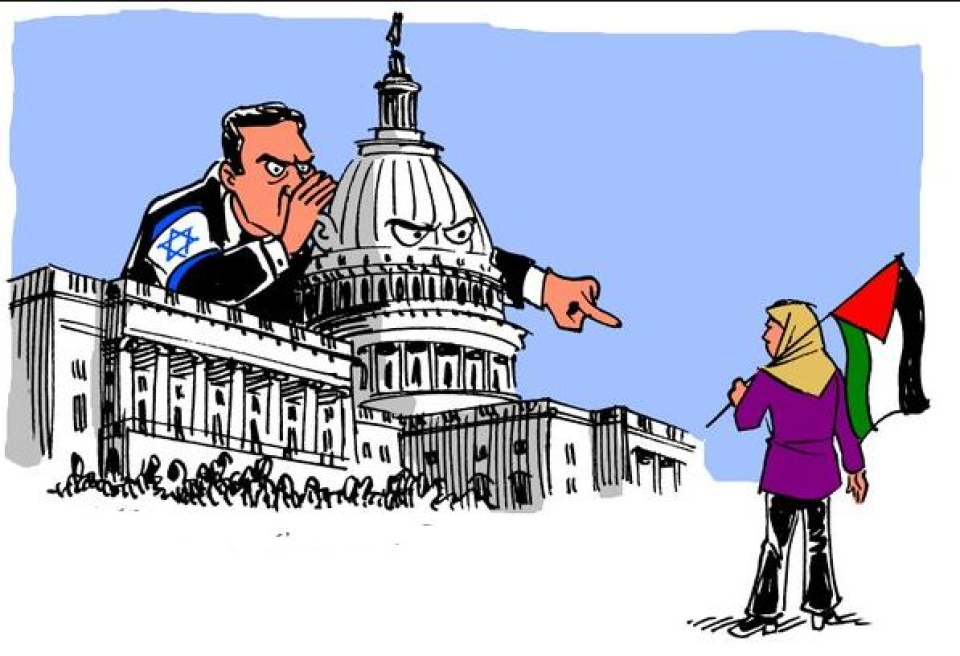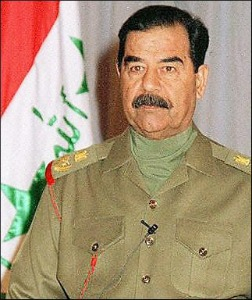By Sadegh Haghighat, Ph.D.
Within the intricate panorama of global interactions, the phenomenon of Islamophobia emerges as a multifaceted and dynamic force, intertwining historical epochs, geopolitical shifts, and cultural perceptions. Beyond a mere expression of irrational fear or prejudice, Islamophobia encapsulates a complex tapestry woven over centuries, intricately linked to the ebbs and flows of Islamic-Western relations. While the term itself may be a product of contemporary discourse, its roots delve deep into the rich soil of historical encounters that have profoundly influenced the contours of Islamophobic sentiments. Traversing through this historical labyrinth, one discovers that the lens through which Islam is perceived in the Western world has been shaped by academic dialogues, geopolitical maneuvering, and the pervasive influence of media narratives. Unraveling the layers of contemporary Islamophobia necessitates an exploration of centuries past, decoding the complex interplay of historical forces, scholarly interpretations, and deliberate narrative constructions that have given rise to the intricate tapestry of Islamophobia we grapple with today.
Islamophobia refers to the irrational fear, aversion, or discrimination towards Islam or Muslims. While the term may not have a lengthy history in the Western world, its conceptual roots can be traced back over the extensive timeline of Islamic history. One of the most pivotal historical periods contributing to the formation of Islamophobic sentiments occurred in the 9th century AD (mid-850 to 860) within Islamic Spain (Al-Andalus). The tumultuous events known as the "Martyrs' Movement" marked a dark chapter in the history of Islamic-Christian relations. Karl Armstrong, a prominent historian of Islamic-Christian relations, asserts that the genesis of Western perceptions of Islam can be linked to this movement, emphasizing its significance in shaping Western attitudes towards Islam. The Crusades and the associated events during that era also played a substantial role in shaping negative perceptions and fears of Islam in the Western psyche. The history of interactions between Islam and the West is rife with such events and misunderstandings, accumulating over time and persisting to the present day1.
Following the Renaissance and the Western world's scientific and technological advancements, a transformation occurred in its outlook towards the Islamic world. Edward Said, in his works on Orientalism and Covering Islam: How the Media and the Experts Determine How We See the Rest of the World, sheds light on the new manifestations of these perspectives. In his book on Orientalism, Said elucidates how the discourse of power, influenced by the aforementioned historical context, shapes a negative and distorted image of Islam. This discourse, according to Said, permeates academic Oriental Studies, which he at times characterizes as a form of academic imperialism. Norman Daniel, in Islam and the west: the making of an image asserts that the prevailing Western viewpoint on Islam essentially echoes medieval sentiments, solidifying in the mid-14th century and persisting unchanged until the mid-20th century. Therefore, as articulated by Daniel and Said, the enduring Western perspective on Islam remains rooted in historical precedents, shaping both academic and public discourse well into the contemporary era.
Secondly, there is media coverage of Islam. Edward Said contends that, particularly following the Islamic Revolution in Iran and increased attention from Europe and the United States, mass media has engaged in reporting on Islam. However, according to ongoing academic research, this media coverage is replete with misconceptions and misleading content . It is during this phase that the term "Islamophobia" gradually emerges and comes into use 2.
It appears that the fear-mongering about Islam, which began in medieval Christian Europe with the intention of preventing the religious influence of Muslims in Europe, has evolved into a fundamental strategy for the confrontation between the Western world and the Islamic world. This transformation occurred after the collapse of the Soviet Union, the ascendance of Western civilization as the sole unrivaled global power, and Samuel Huntington's theory of the Clash of Civilizations. The culmination of this theme took place following the events of September 11 in the United States and the subsequent invasion of Afghanistan, which George W. Bush characterized as a new form of Crusades. The pursuit of this strategy led to the emergence of a phenomenon known as Islamophobia industry, a phenomenon keenly interested in maintaining the ambiguity and confusion in the relationship between Islam and the West. According to Arnold Toynbee, a prominent British historian, the survival of any civilization necessitates defining a real threat, and within this framework, Western leaders, led by the United States, selected Islam and Muslims as the chosen threat. Historically, the predisposition to perceive Islam as a threat has been deeply ingrained in the collective consciousness of the Western world.
Amidst this, the Zionist movement sought to play a significant role in fortifying the industry of Islamophobia by capitalizing on the fear that the West harbored towards Islam. Paul Findley, in his book No Silence after Today elucidates how Zionists utilized the events of September 11 to advance their theory advocating Israel's support for American democratic values and its presence in the collective fight against what is labeled as Islamic terrorism. Findley highlights their efforts to propagate this narrative and beat the drums of Islamophobia by leveraging the post-9/11 environment.
As an illustration, the Prime Minister of the Zionist regime, in adopting this approach, addressed the French Ambassador following the 2015 terrorist attack by ISIS in Paris, stating: "We stand firm, and we do not remain silent. Although these savages created victims among us, we take pride in our values, integrity, and freedom. These animals are the same extremist Islamists." However, the duplicity of the Zionist regime in articulating these positions against ISIS became evident when widespread reports emerged of the leaders of this terrorist group receiving medical treatment in Zionist regime hospitals. In response to this generosity, ISIS refrained from launching any military attacks against Israel, even in the current circumstances where Israel openly engages in the systematic oppression in Palestine, and there is minimal condemnation of Israel's crimes from media and groups affiliated with ISIS.
Paul Findley, based on information in his book, asserts that the Islamophobia industry in the United States is orchestrated by a group of Zionists. Findley acknowledges that the financial backers of Islamophobia consist of seven organizations and institutions with conservative approaches, many of which pose as non-profit entities supporting educational projects. Some of these entities are charitable organizations, and their donations contribute to funding the Islamophobia industry in the United States. Within this framework, millions of dollars are disseminated through experts who spread rumors and fake news about this policy. These experts, comprising Frank Gaffney, David Yerushalm, Daniel Pipes, Robert Spencer, and Steven Emerson, are all affiliated with Zionist movements in the United States. Their endeavor is to portray Islam as a threat to American society and other Western communities, utilizing mainstream media channels largely influenced by the same Islamophobic Zionist industry.
What occurred in Palestine on October 7, known as the Al-Aqsa Storm, is subject to examination from various perspectives. One of the most significant aspects of this event is its potential impact on the global phenomenon of Islamophobia. Zionism, identified as one of the orchestrators of the Islamophobic narrative in the West, initially attempted to manipulate public opinion worldwide in its favor by presenting inaccurate information about Hamas allegedly beheading children and leveraging the Islamophobia trend in the West. However, the credibility of these claims was swiftly refuted, even in American media outlets, leading to a global wave of condemnation against Israel's criminal actions. The atrocious acts committed by Israel, comparable in cruelty to those of ISIS in contemporary times, have caused Israel to be widely condemned globally, enlightening people that extremism is not exclusive to Islam and is equally perilous in the form of Zionist extremism manifested in the repugnant face of Zionism. It is now understood that extremism transcends religious boundaries and that Zionist extremism, as depicted by Israel, is profoundly perilous, showing no limits in its ruthless acts, such as massacres of women and children, bombings of hospitals and schools, and the disruption of international organizations and vital necessities like water, electricity, and fuel.
On the other hand, the endurance and resilience of the Palestinian people have deep roots in their religious and spiritual beliefs. Recently, I came across a short video of a European youth who said, "I want to know what Islam is about that enables the Palestinian people to endure such hardships and tribulations." He had acquired a copy of the Quran to familiarize himself with Islam, hoping to uncover the secret behind the tranquility and resilience of the Palestinians.
In reality, the director of the Islamophobia narrative, Israel, through its committed crimes, unintentionally draws more attention to Islam without intending to present another face of Islam to the world. This has led to increased global interest in understanding Islam and encountering a genuine portrayal of Islam, something Israel vehemently opposes. Indeed, Allah is the best of planners.
In conclusion, the role of the Islamophobia industry, orchestrated by Zionist movements, adds another layer to this narrative. Utilizing events like 9/11, these actors sought to portray Islam as an imminent threat, aligning with Israel's geopolitical interests. The media manipulation and dissemination of misinformation, orchestrated by figures like Frank Gaffney and David Yerushalmi, have contributed to a distorted perception of Islam in the West. Meanwhile, the recent events in Palestine, notably the Al-Aqsa Storm, have illuminated the dangers of Zionist extremism and, paradoxically, increased global curiosity about Islam.
The conclusion draws attention to the unintentional consequences of Israel's actions, which inadvertently highlight the resilience of Islam in the face of adversity. As global awareness grows, there is a growing realization that extremism is not exclusive to any particular religion and that Zionist extremism, exemplified by Israel's actions, poses a severe threat. The enduring resilience of the Palestinian people, rooted in their spiritual beliefs, serves as a powerful counter-narrative against Islamophobia. In this evolving landscape, understanding the true essence of Islam becomes crucial, challenging the distorted narratives perpetuated by Islamophobic industries and fostering a genuine appreciation for religious diversity and coexistence.
Cited Works
W. Ernst, Carl, Following Muhammad, Rethinking Islam in the Contemporary World, The University of North Carlina press, 2004
Said, Edward W., Covering Islam, Pantheon Books, 1981, P8

















